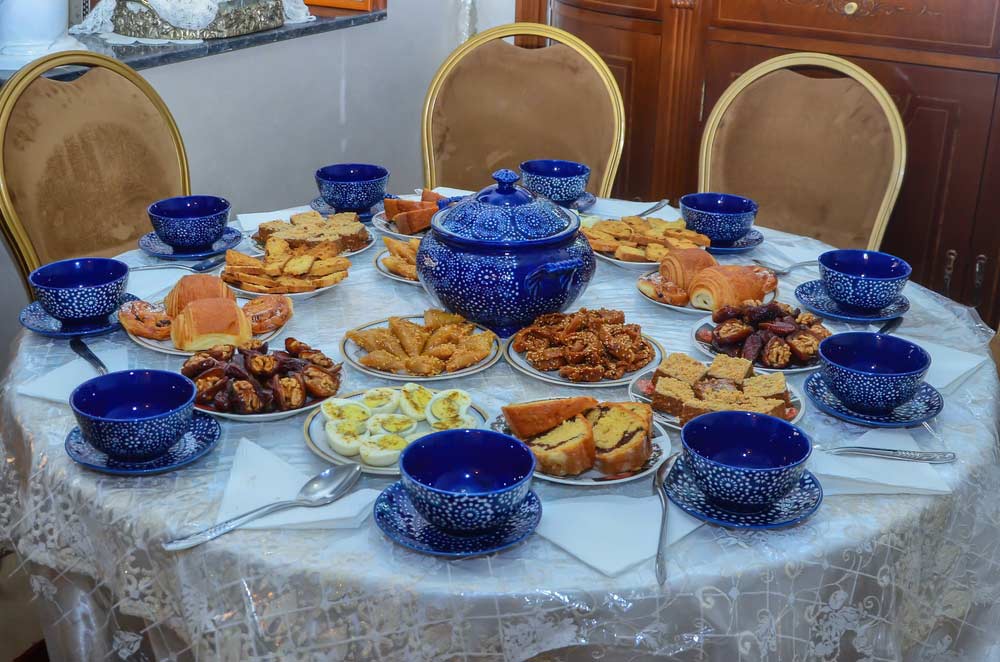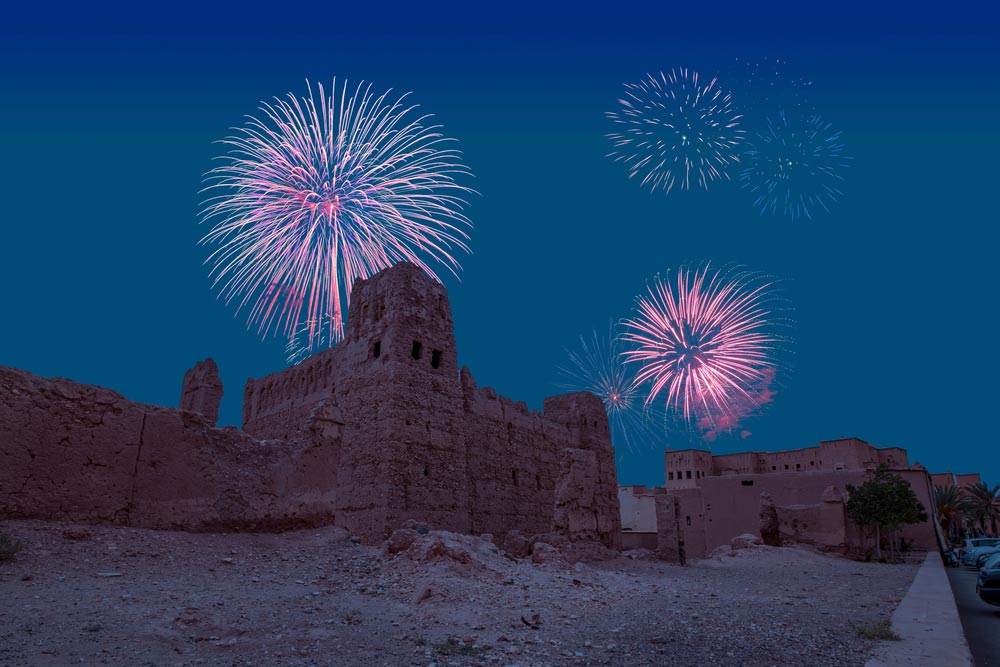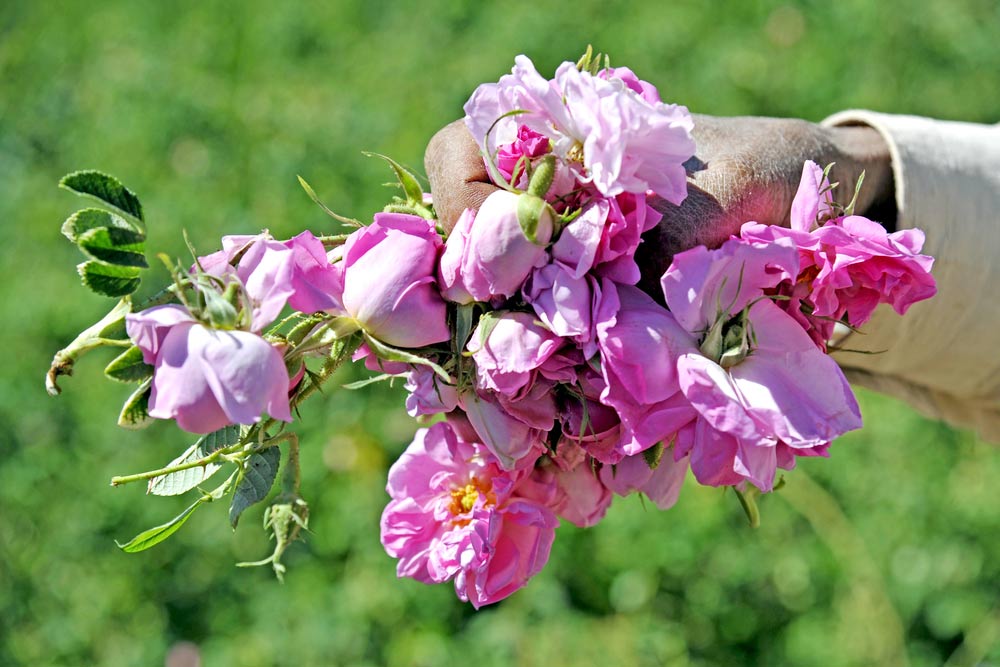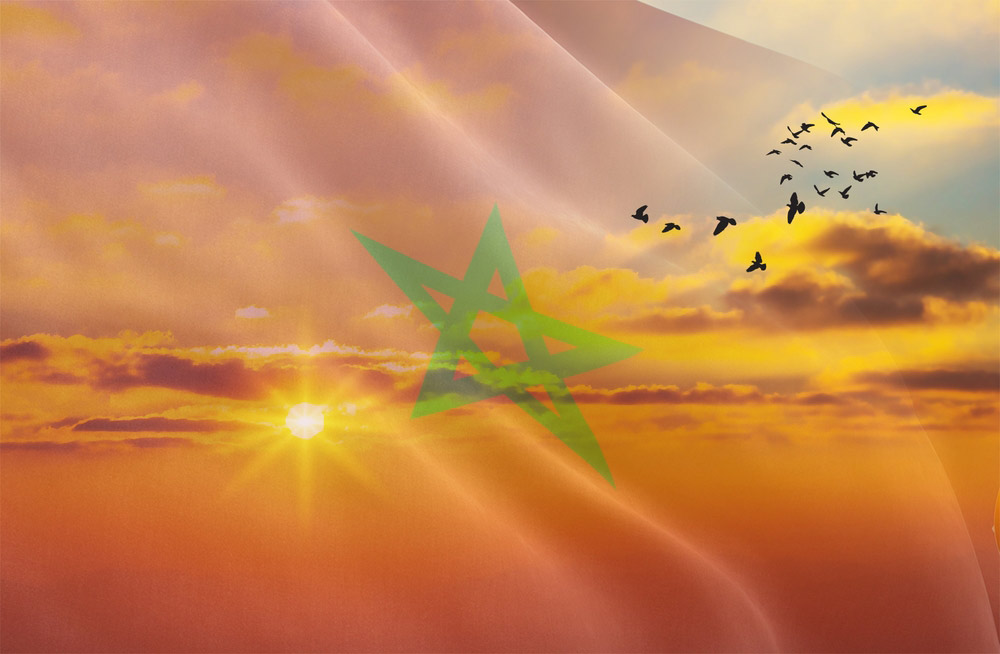Morocco is a country full of vibrant culture and traditions. One of the best ways to experience this rich heritage is through its festivals and celebrations. These events are colorful, lively, and full of history. They offer a glimpse into the diverse customs and beliefs of the Moroccan people.
Festivals in Morocco are celebrated with great enthusiasm. They include religious festivals, cultural celebrations, and national holidays. Each festival has its unique charm and significance. From the bustling markets during Ramadan to the joyous music at the Fes Festival of World Sacred Music, there is always something exciting happening.
Religious festivals like Ramadan and Eid Al-Adha are deeply rooted in Islamic traditions. They bring families and communities together in worship and celebration. Cultural festivals, on the other hand, highlight Morocco’s diverse heritage. Events like the Almond Blossom Festival and the International Nomads Festival showcase local customs and traditional arts. National holidays such as Throne Day and Independence Day honor the country’s history and achievements.
Experiencing these festivals allows visitors to immerse themselves in Moroccan culture. They can see traditional dances, taste local foods, and participate in age-old customs. These celebrations are not just about fun; they are a way to understand the values and way of life in Morocco.
Religious Festivals
Ramadan
Ramadan is a holy month for Muslims, observed with fasting, prayer, and reflection. From sunrise to sunset, people abstain from eating and drinking. This fasting, known as sawm, is one of the Five Pillars of Islam. The day ends with iftar, a meal to break the fast, often starting with dates and water. Families gather to share meals and pray together.
The streets of Moroccan cities come alive at night. Markets bustle with activity, food stalls sell a variety of delicious treats, and mosques are filled with worshippers. Special prayers, called Taraweeh, are held at night. Ramadan is a time for spiritual growth, charity, and community bonding. People also give zakat, or charity, to help those in need.

Eid Al-Adha
Eid Al-Adha, the Festival of Sacrifice, commemorates the willingness of Ibrahim (Abraham) to sacrifice his son as an act of obedience to God. God provided a ram to sacrifice instead. To remember this act, families sacrifice an animal, usually a sheep, goat, or cow. The meat is divided into three parts: one for the family, one for friends and relatives, and one for the poor and needy.
People dress in their finest clothes and attend special prayers at the mosque. After the prayers, the sacrifice is performed, and the meat is distributed. This festival is marked by acts of generosity, feasting, and spending time with loved ones. It is a reminder of faith, obedience, and compassion.
Milad un Nabi
Milad un Nabi, also known as Mawlid, celebrates the birthday of the Prophet Muhammad. It is a joyous occasion marked by prayers, recitations of the Quran, and singing of hymns and poems in praise of the Prophet. Homes, mosques, and streets are decorated with lights and banners.
Communities gather for special meals and share sweets and desserts. Religious scholars deliver sermons about the life and teachings of the Prophet Muhammad. This festival helps Muslims reflect on the Prophet’s life, his message of peace and compassion, and his role as a guide for humanity.
Cultural Celebrations
Yennayer (Amazigh New Year)

Yennayer marks the Amazigh New Year and is celebrated with traditional songs, dances, and feasts. The Amazigh people, also known as Berbers, have a rich cultural heritage. This festival is a time to honor their history and traditions. Families prepare special dishes like couscous with dried meats and vegetables.
Traditional Amazigh music fills the air, and people dance in colorful attire. The festival is not only a celebration of the new year but also a reaffirmation of Amazigh identity and pride. It is a joyful and colorful event that showcases the vibrancy of Amazigh culture.
Almond Blossom Festival
The Almond Blossom Festival is held in the small town of Tafraoute, in the heart of the Anti-Atlas mountains. This festival celebrates the blooming of almond trees, which transform the landscape into a sea of pink and white blossoms. The festival includes music, dancing, and local crafts.
Stalls sell almond products like oil, sweets, and pastries. Traditional Berber music and dance performances add to the festive atmosphere. Visitors can also explore the beautiful surroundings and learn about the local way of life. This festival highlights the beauty of nature and the importance of almonds to the local economy.
International Nomads Festival
The International Nomads Festival is a celebration of nomadic culture, held in the desert town of M’hamid El Ghizlane. Nomads from different regions come together to share their way of life. The festival features music, poetry, and storytelling, offering a unique insight into nomadic traditions.
Visitors can see traditional tents, known as khaymas, and watch demonstrations of skills like camel herding and traditional crafts. The festival also includes discussions on issues facing nomadic communities today. It is a unique opportunity to learn about and appreciate the rich heritage of nomadic life.
Gnaoua and World Music Festival
Held annually in Essaouira, the Gnaoua and World Music Festival is a dynamic fusion of traditional Gnaoua rhythms and global genres like jazz and reggae. The festival attracts thousands and showcases Morocco’s cultural diversity while promoting artistic collaboration across cultures. The open-air performances, cultural forums, and workshops make it an unmissable event in Morocco’s cultural calendar.
Fes Festival of World Sacred Music
The Fes Festival of World Sacred Music is held in the ancient city of Fes and brings together artists from around the globe. Performances include spiritual music from various cultures, promoting peace and understanding through the universal language of music.
Concerts are held in beautiful historical sites, such as the Bab Makina, an ancient gate, and the Dar Batha Museum. The festival also includes a forum for discussing global issues and a program for young artists. It is a magical experience that connects people through the beauty and power of music.
Mawazine Festival
The Mawazine Festival is one of the largest music festivals in the world, held annually in Rabat, Morocco. It features artists from across the globe, highlighting Morocco’s diverse musical landscape. With free and ticketed performances, the event attracts massive audiences and promotes cultural exchange, showcasing genres from traditional Moroccan music to international pop and rock. The festival not only celebrates music but also contributes significantly to Morocco’s cultural and economic scene.
Rose Festival in Kelaat M’gouna

The Rose Festival in Kelaat M’gouna celebrates the rose harvest in the Valley of Roses. The festival includes parades, beauty pageants, and local crafts. The sight and scent of roses fill the air, creating a magical atmosphere.
Visitors can watch the crowning of the Rose Queen, enjoy traditional music and dance, and buy rose products like perfumes and oils. The festival highlights the importance of roses to the local economy and culture.
Marrakech Popular Arts Festival
The Marrakech Popular Arts Festival is a vibrant celebration of Moroccan arts, showcasing traditional music, dance, and theater. Performers from all over Morocco come to share their talents, making the streets of Marrakech come alive with parades and shows.
The festival features a variety of performances, from Gnawa music to Berber dances and Arabic theater. Visitors can also enjoy street performances and artisan crafts. This festival is a feast for the senses and a celebration of Moroccan creativity and cultural diversity.
Imilchil Marriage Festival
The Imilchil Marriage Festival is a unique event where couples come to get married, based on a legend of two lovers who were not allowed to marry. Today, the festival is a symbol of love and unity. Couples dress in traditional Berber attire and exchange vows.
The festival also includes music, dancing, and local crafts. Visitors can witness traditional wedding ceremonies and enjoy the festive atmosphere. It is a beautiful celebration of love, tradition, and community.
Erfoud Date Festival
The Erfoud Date Festival celebrates the harvest of dates and is held in the town of Erfoud, known for its date palms. The festival includes a date tasting, music, and dance. There are also camel races and traditional sports.
Visitors can learn about the different varieties of dates and their importance in Moroccan cuisine. The festival highlights the economic and cultural significance of dates, bringing together farmers, traders, and visitors in a joyous celebration.
Asilah Arts Festival
The Asilah Arts Festival transforms the town of Asilah into an open-air gallery. Artists from around the world come to paint murals and exhibit their work. The festival also includes music, theater, and poetry readings.
The town’s whitewashed walls become canvases for beautiful and vibrant murals. Visitors can attend art workshops and meet artists from different countries. The festival is a celebration of creativity, cultural exchange, and the transformative power of art.
Guelmim Camel Festival
The Guelmim Camel Festival is a celebration of the camel, an important part of Moroccan culture. The festival includes camel races, trading, and beauty contests. It is held in the town of Guelmim, known as the Gateway to the Desert.
Visitors can watch skilled riders compete in races and see camels adorned with colorful decorations. The festival also features traditional music, dance, and crafts. It is a unique opportunity to learn about the cultural significance of camels and enjoy a vibrant desert celebration.
National Holidays

Throne Day
Throne Day celebrates the anniversary of King Mohammed VI’s ascension to the throne. It is a day of national pride and unity. Celebrations include parades, fireworks, and public speeches. People decorate their homes with flags and photos of the King. It is a time to honor the monarchy and the country’s achievements.
Independence Day
Independence Day marks Morocco’s independence from French colonial rule in 1956. It is celebrated with patriotic fervor. Schools and government buildings host events, including flag-raising ceremonies and speeches. People participate in parades and cultural performances. It is a day to remember Morocco’s struggle for freedom and to celebrate its sovereignty.
Green March Day
Green March Day commemorates the 1975 mass demonstration that led to Morocco’s reclaiming of the Western Sahara. Thousands of Moroccans marched into the territory, waving flags and carrying pictures of the King. The day is marked by parades, reenactments, and educational events. It is a day to celebrate national unity and the peaceful reclaiming of land.
Marrakech International Film Festival
The Marrakech International Film Festival is a prestigious event that promotes Moroccan and international cinema. It attracts filmmakers, actors, and movie enthusiasts from around the world. The festival includes film screenings, workshops, and panel discussions. It is held in the beautiful city of Marrakech, providing a stunning backdrop for the event.
Attendees can watch a diverse range of films, from independent movies to big-budget productions. The festival also offers masterclasses with renowned directors and actors. It is an opportunity to celebrate the art of filmmaking and explore the vibrant culture of Marrakech. The festival’s glamorous red carpet events and star-studded parties add to its allure.
Practical Tips for Travelers
When planning a visit to Morocco, consider timing your trip to coincide with one of these festivals. This will allow you to experience the country’s rich cultural traditions firsthand. Make sure to book accommodations in advance, as festivals can attract many visitors. Research the dates and locations of the festivals to plan your itinerary effectively.
Respect local customs and traditions during your visit. Dress modestly, especially during religious festivals. It is polite to greet people with “Salam Alaikum” and show respect in places of worship. When invited to a meal, try a bit of everything and praise the food. Being mindful of these etiquettes will enhance your experience and show appreciation for the local culture.
Conclusion
Morocco’s festivals and celebrations offer a unique window into its vibrant culture and traditions. From religious observances to cultural festivities and national holidays, these events highlight the country’s diverse heritage. Experiencing these festivals provides a deeper understanding of Moroccan life and values.
Festivals in Morocco are more than just events; they are celebrations of life, culture, and community. Whether you are witnessing the beauty of the Almond Blossom Festival or the lively parades of Throne Day, each festival is a chance to connect with Morocco’s soul. Plan your visit around these celebrations to fully immerse yourself in the country’s rich traditions and joyous spirit.
